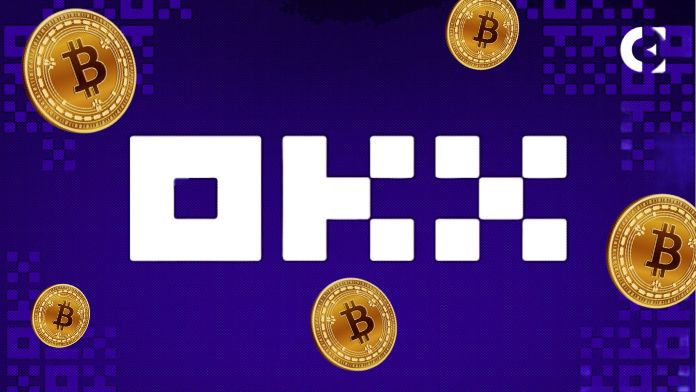- OKX wallet consolidation transactions contribute to severe Bitcoin network congestion, causing fees to spike to $52.
- Over 330,000 Bitcoin transactions remain unconfirmed, with memory usage peaking at 1.35 GB amid ongoing network congestion.
- Network congestion worsened by recent Bitcoin halving and power outages in major mining hubs, affecting transaction times.
A backlog of user wallet consolidation transactions on cryptocurrency exchange OKX is causing significant congestion on the Bitcoin network.
Mempool founder @mononautical reports that OKX has nearly 1,000 unconfirmed transactions remaining, totaling over 42 million virtual bytes and incurring fees exceeding 57 bitcoin (BTC).
This represents a recovered value of approximately 730 BTC. Consequently, OKX faces a delay of roughly 70 blocks before the mempool returns to normal processing speeds. The fee surge triggered by OKX’s activity is reflected in the uniform strata of the mempool chart.
Wu Blockchain also reported a surge in Bitcoin network fees to 520 sat/vbyte, indicating network congestion around $52 per transaction. This congestion stems from OKX’s sorting and collection of user wallets. The network currently holds over 330,000 unconfirmed transactions, with memory usage reaching 1.35 GB.
OKX began processing wallet transactions starting from block 846,867. They have processed over 2,380 transactions with an average fee rate of 246.65 sat/vbyte. This process incurred a cost of 254.28 BTC, or roughly $17.6 million at today’s Bitcoin price of $69,270.00.
Bitcoin’s trading volume is $35,151,790,533, reflecting a decrease of 2.85% in the last 24 hours. This effort, driven by an inefficient automated system, has resulted in internal bidding wars and inflated Bitcoin network fees.
Beyond OKX’s issues, the Bitcoin ecosystem faces additional challenges contributing to high transaction fees. The recent halving event, which reduced block rewards from 6.25 BTC to 3.125 BTC, has impacted miner profitability. This reduction has led to a decline in mining activity, with the network experiencing its largest daily hash rate drop since November 2017.
Power outages in major Chinese mining hubs have further exacerbated this problem, causing longer transaction times and increased competition for transaction processing.
Disclaimer: The information presented in this article is for informational and educational purposes only. The article does not constitute financial advice or advice of any kind. Coin Edition is not responsible for any losses incurred as a result of the utilization of content, products, or services mentioned. Readers are advised to exercise caution before taking any action related to the company.







